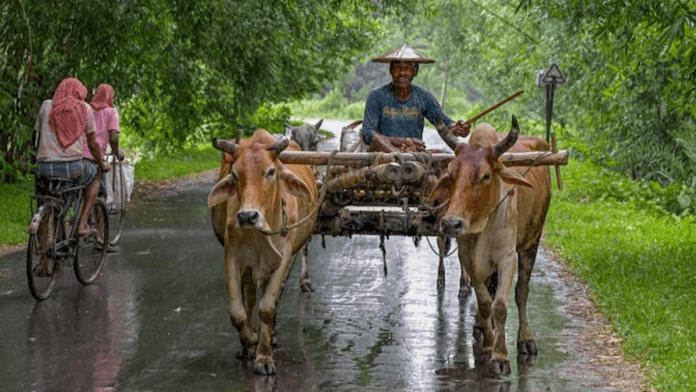News in brief: India experienced its lowest monsoon rainfall in five years in 2023 due to the El Niño weather pattern, potentially raising food prices and prompting export restrictions on staples like rice, wheat, and sugar. The erratic rainfall distribution has already led to measures to manage food supply because the monsoon season plays a crucial role in India’s agricultural production and economy.
India received its lowest monsoon rainfall in five years in 2023, due to the El Niño weather pattern, multiple news sources reported over the weekend.
Analysts expect that this change would affect agricultural production, making staples such as sugar, pulses, rice, and vegetables more expensive and pushing up overall food inflation.
The summer rainfall deficit could also prompt India, the world’s second-biggest producer of rice, wheat, and sugar, to impose more restrictions on exports of these commodities amid soaring global food prices. Already, it has banned non-basmati rice exports and caused rice prices all over the world to go up.
India’s monsoon rainfall in 2023 was the lowest since 2018, at 94% of the long-period average, the India Meteorological Department (IMD) said, as an Aljazeera report quoted.
The IMD had anticipated a rainfall deficit of 4%, but the monsoon was uneven, with June rains nine per cent below average and July rains rebounding to 13% above average.
The erratic rainfall distribution has led India, the world’s largest rice exporter, to take steps to manage its food supply. These steps include limiting rice shipments, imposing a 40% duty on onion exports, and permitting duty-free imports of pulses.
The country is expected to receive normal rainfall from October to December, but temperatures are likely to remain above normal in most of the country during October.
The monsoon is vital for India’s $3 trillion economy, contributing more than 70% of the country’s annual rainfall and replenishing reservoirs and aquifers. Nearly half of India’s farmland lacks irrigation, making the monsoon rains even more essential for agricultural production.



